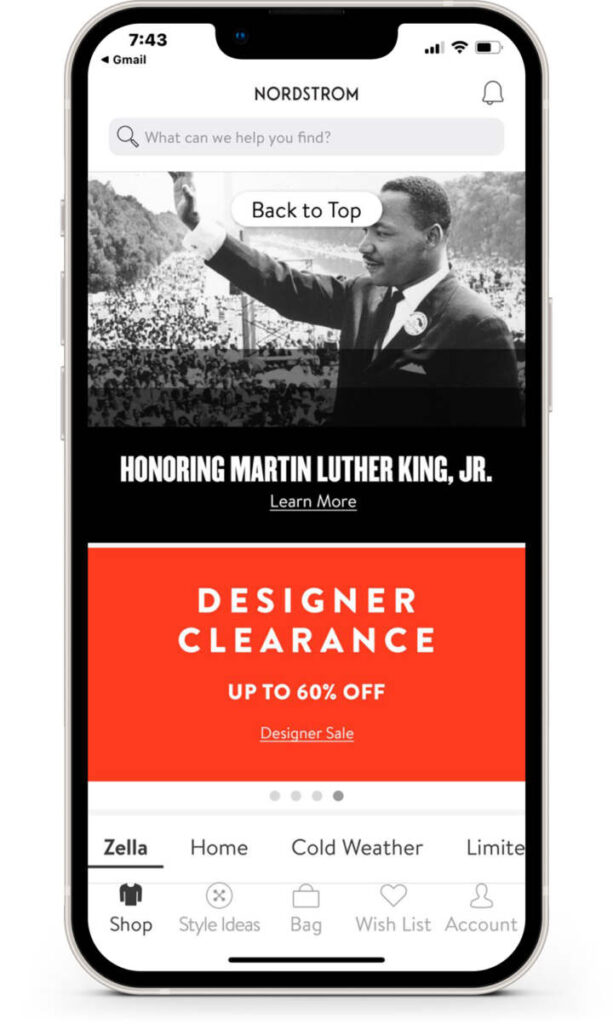It takes many good deeds to build a good reputation, and only one bad one to lose it. — Benjamin Franklin
No truer words have been spoken when it comes to building and sustaining a strong brand reputation. A brand is the North Star that should guide every decision a company makes. Those decisions don’t just happen in the C-suite, marketing department, or product development; they’re made all day, every day by everyone in the company, whether they know it or not. Everything everyone does reflects on the brand.
The best brands in the world aren’t immune to poor execution and customers’ perceptions ultimately can’t be manipulated: How great was the Uber brand until we discovered the abuse of its drivers? How democratizing was Facebook until we found out what they did with our data? How much do we adore Restoration Hardware until it’s clear the sales associate is annoyed by our presence?
The reality is that great brands are created through relentless attention to detail at every point in the customer’s journey. No brand does this better than Apple and that’s not just because they have great products; it’s because of the great rigor to deliver impeccable experiences before, during, and after purchase. Marketers love to talk about the Apple brand, but are we prepared to do what it takes to deliver? The details matter at every stage in a customer’s journey:
Pre-purchase:
Consider all the detail that needs to go into an ad campaign: Is the copy well-written and proofread? Have you legally secured the imagery and is it rendering correctly across all devices and platforms? Are you retargeting too much? What about the landing page — is it well-designed, proofed, published, etc? Is any lead form easy to fill out? Is it clear what my next step is as a prospect?
See, you just wanted to run an ad! But a small mishap can make a big impression. For example, marketers love to tie their ads and promotions to key holidays, but this can be tricky. When shopping on the Nordstrom site one January, I saw this unfortunate ad:

But there was also a nice recovery the following month:

If you want to ride on the coattails of meaningful holidays, be careful not to appear tone-deaf, pandering, or just plain inappropriate.
Purchase:
Even the simplest things can transform a purchase transaction into a brand experience. I’ll never forget buying some snacks at a 24-hour convenience store under a freeway in Tokyo. The store was immaculate, with good lighting, tidy shelves, and easy-to-see prices. When it was time to pay, I was directed to put my credit card on a little tray. I was impressed by the considerate way the clerk took my payment and offered back the receipt along with a gracious thank you. Have you ever had that experience in a 7-11?
While one forgotten detail can make a poor brand impression, one well-done detail can help mitigate a whole host of ills. The Walgreens near my house is a popular stop for tourists headed to the beach so it’s often a mess outside and disorganized inside. I could easily shop at the other drug stores nearby, but there’s a sales associate who keeps me loyal. Abraham is a true professional: friendly (looks you in the eye and says hello), competent (can answer your questions and understands store policies), efficient (remains friendly while checking you out quickly), and neatly attired (love that ironed blue shirt!). He enhances Walgreens’ brand reputation by carefully tending to the details of his job, which leaves a lasting impression.
Post-purchase:
Once you part with your money on a product or service, you really see how a company values you and your business. A follow-up message can go a long way; a salesperson might phone an enterprise customer to ensure implementation is going well or a repair service might call a customer to ensure things are still working properly.
The details are equally critical to this stage. I once had a delightful experience having my car repaired at a local shop. From beginning to end the experience was impeccable — friendly service, knowledgeable staff, an accurate estimate, and work done on time and well. I thanked everyone profusely and was happy to answer the customer survey I received as a follow-up. The only problem was that I continued to get emails and texts (7 in all!) asking me to respond to the survey. I found myself feeling annoyed, which was such a shame given how well everything had gone until this point. And it was simply because of an overlooked detail: ensuring the survey system was not pinging customers who had already filled it out. It’s commendable that the shop’s brand play included post-purchase, but without careful thought, the post-purchase experience undid some of the positivity of their overall brand experience.
The good news is if you have a commitment to detail, you can be a brand with an excellent reputation, regardless of how big or small your company is. Perfection isn’t required but getting it right consistently is — and, for those times you do occasionally misstep, genuine care (and owning your mistakes) for your customers fosters forgiveness. The other good news? You don’t have to have a big marketing team or a large staff to get this right. You just need to care about the details — after all, the devil is in the details, and they all add up to a good brand reputation.
I’ve often said that attention to detail ensures success — read more about why (and three other lessons I learned from my family’s business!) here.







